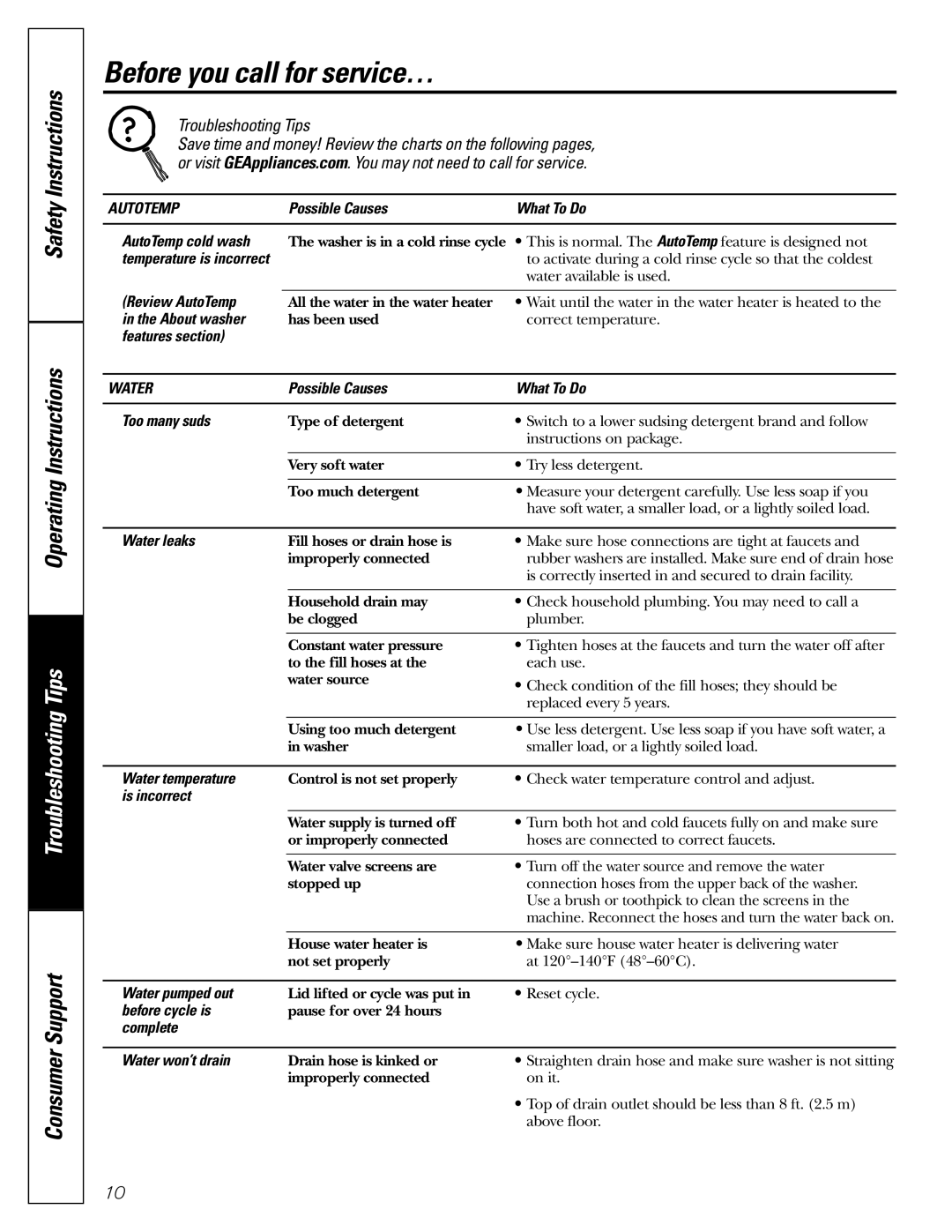S4200, WSSE5210, WCSE4160, WWSE5200, WBSE3120 specifications
The GE WLE4000, WASE5210, WBSE3120, WWSE5200, and WCSE4160 are part of GE's exceptional lineup of advanced energy management systems, offering unique features and technologies tailored for diverse applications in the field of industrial and commercial power systems.Starting with the GE WLE4000, this model is designed as a compact solution for energy distribution and management. It offers advanced metering capabilities and real-time data analytics, allowing users to monitor energy consumption effectively. The WLE4000 features a user-friendly interface, making it easy to set up and manage energy use across different operations. Its robust design and flexibility enable integration with various existing infrastructure.
Next up is the WASE5210, which stands out for its adaptability and scalability. This system is engineered with advanced communication technologies, including IoT capabilities, facilitating seamless integration into modern smart grid applications. The WASE5210 employs machine learning algorithms to optimize energy usage and improve operational efficiencies. Its modular design allows for easy expansions or upgrades depending on the changing energy demands.
The WBSE3120 model specializes in substation automation, offering features such as fault detection, location, and isolation. Utilizing cutting-edge cybersecurity protocols, the WBSE3120 ensures data integrity and protection against external threats. With its real-time processing capabilities, it enhances decision-making processes, enabling quicker responses to electrical faults.
The WWSE5200 is engineered specifically for renewable energy applications. It supports advanced functions such as grid connectivity and energy storage management, making it a perfect choice for solar and wind energy projects. The system is equipped with sophisticated power quality monitoring tools that allow users to maintain optimal operational standards, reducing the risk of outages and inefficiencies.
Finally, the WCSE4160 model is aimed at enhancing system reliability and operational performance within industrial environments. Its advanced diagnostic tools and monitoring capabilities provide actionable insights into system health, thereby reducing downtime and maintenance costs. The WCSE4160 also incorporates smart grid technologies, allowing for advanced demand response strategies tailored to user requirements.
In conclusion, GE's WLE4000, WASE5210, WBSE3120, WWSE5200, and WCSE4160 models represent the forefront of energy management technology. Each model brings its own set of features tailored to different segments, promoting efficiency, sustainability, and advanced operational capabilities in diverse energy settings.

